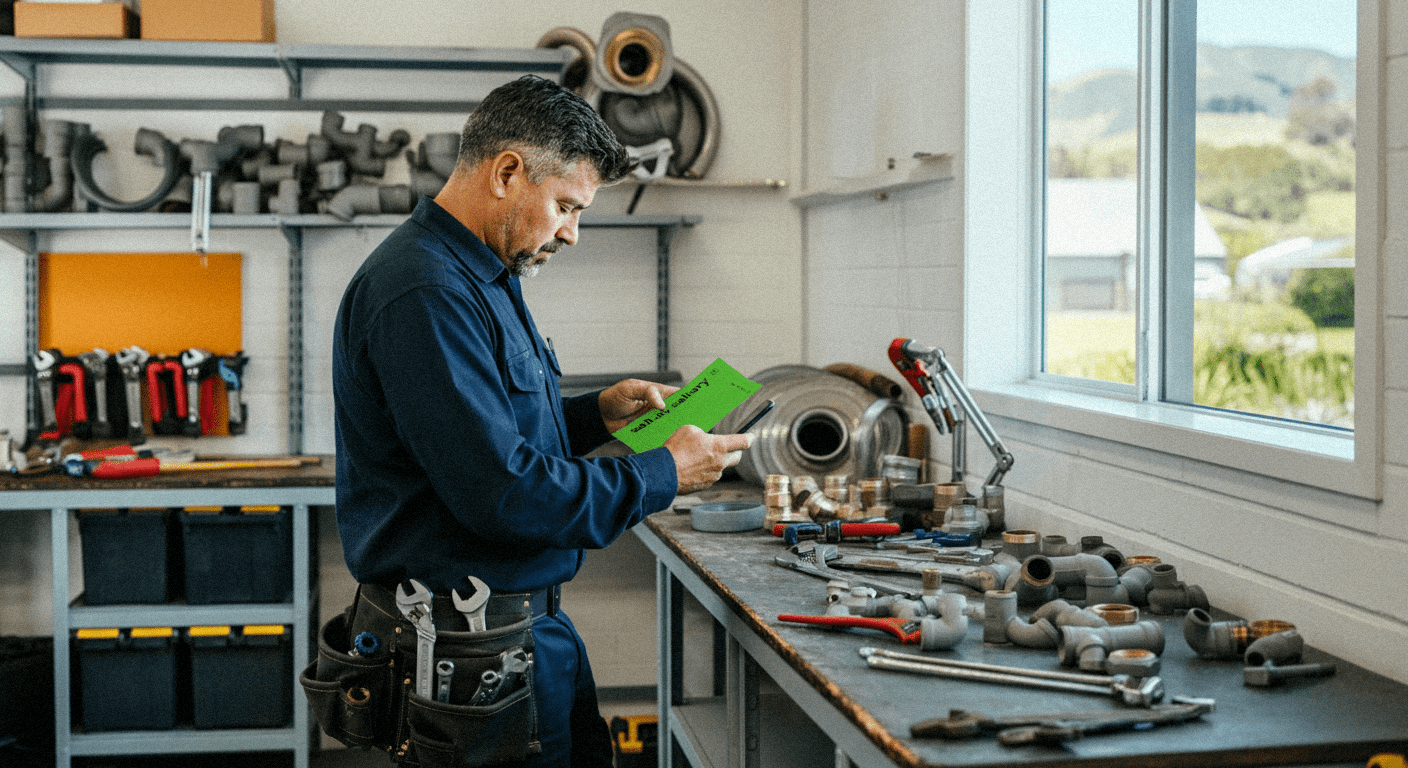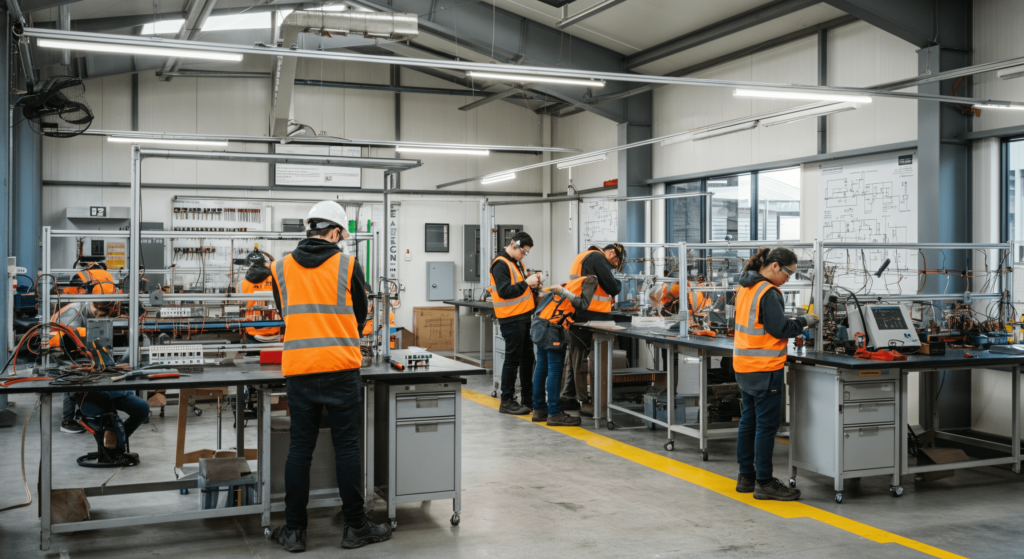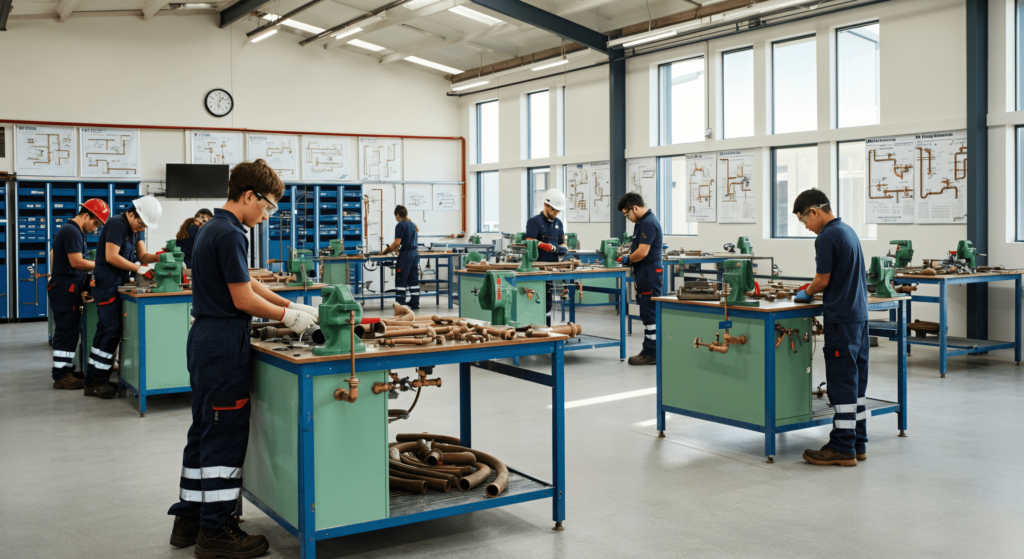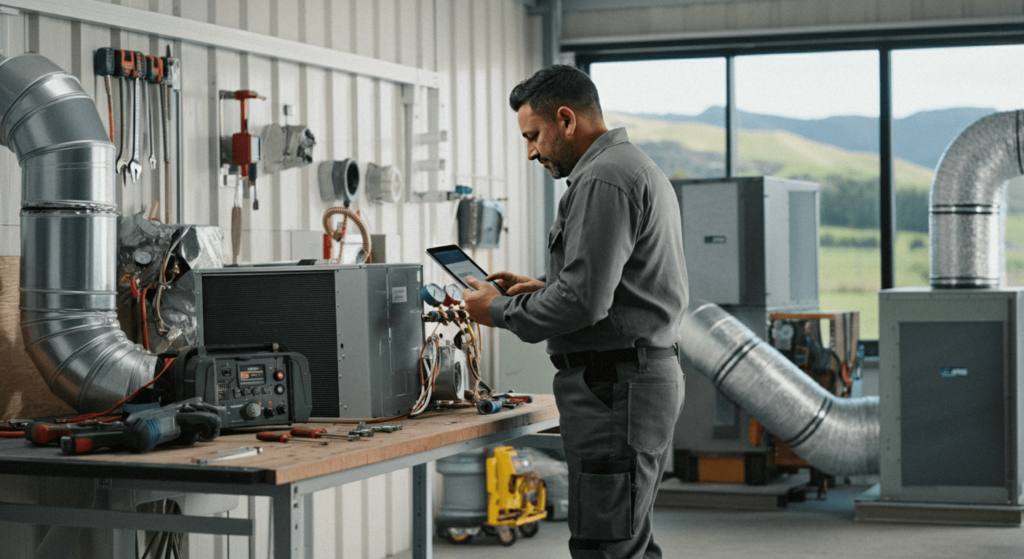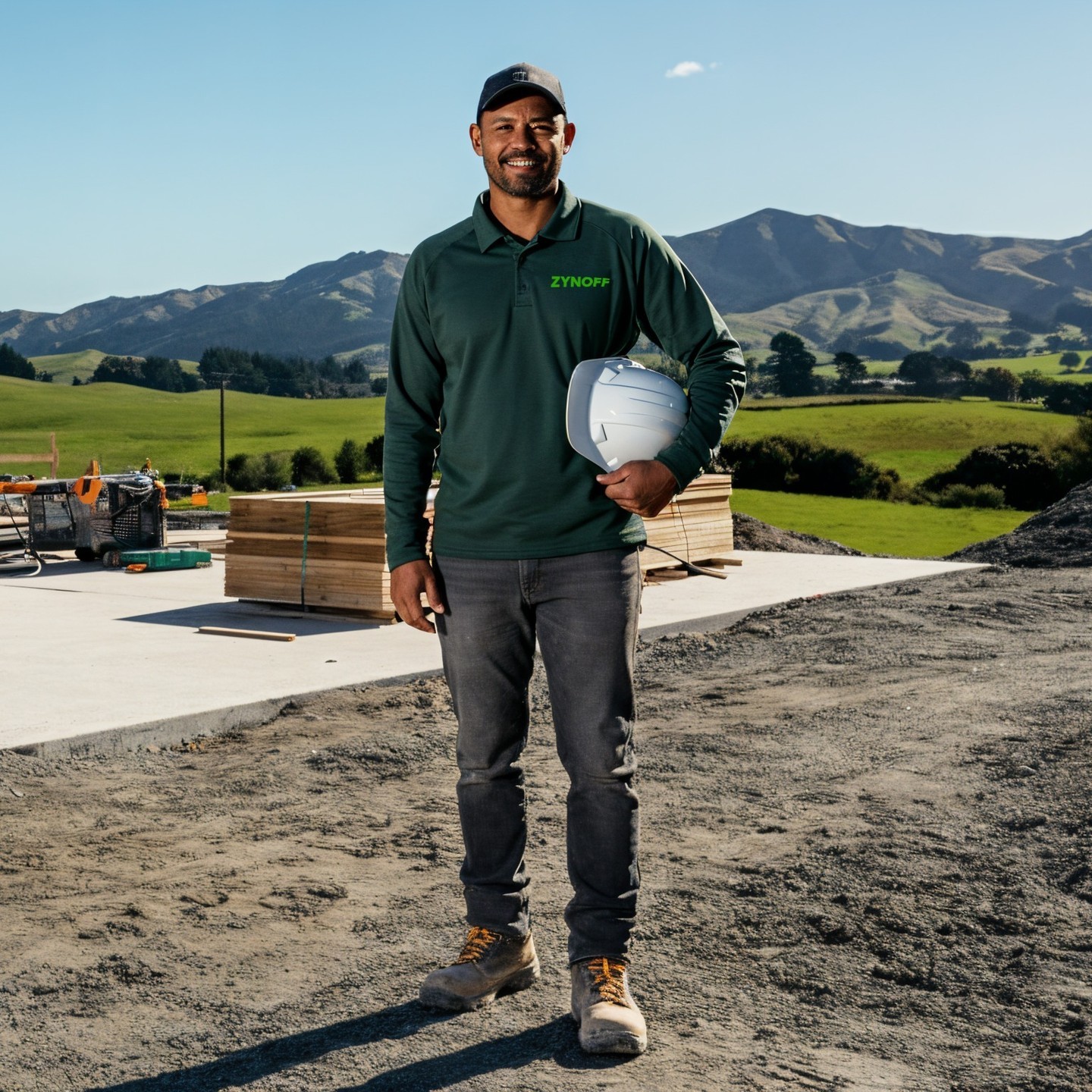In New Zealand’s ever-evolving job market, the plumbing profession offers a diverse range of opportunities and competitive salaries for both apprentices and experienced professionals. This article will provide information on the annual salary of a plumber, apprentice plumber pay rates and what influences the pay of a plumber.
Overview of Plumbing Salaries
Plumbers in New Zealand usually earn between NZD 24 and NZD 53 per hour, depending on their experience and location. However, the average annual salary can vary significantly.
Salary Breakdown by Experience Level
Entry-Level (0-2 Years)
- Average Salary: NZD 45,000 to NZD 61,909 per year
Mid-Level (2-5 Years)
- Average Salary: NZD 61,000 to NZD 74,300 per year
Experienced (5-10 Years)
- Average Salary: NZD 74,300 to NZD 85,042 per year
Senior (10+ Years)
- Average Salary: NZD 104,423 or more per year, depending on specialisation and responsibilities
People who run their own businesses may earn more than this, but their income may depend on the success of their business. In addition to their wages, plumbers may receive other benefits such as tool allowances, vehicle and cell phone use and health insurance.
Average Salaries by City
The following table summarises the average salaries for plumbers in key cities across New Zealand:
| City | Average Hourly Rate (NZD) | Average Annual Salary (NZD) |
| Auckland | $45 – $53 | $93,600 |
| Wellington | $40 – $50 | $83,200 |
| Christchurch | $38 – $48 | $79,000 |
| Hamilton | $37 – $47 | $77,000 |
| Tauranga | $36 – $46 | $75,000 |
| Dunedin | $35 – $45 | $73,000 |
What Plumbers Do
Plumbers may do some or all the following:
- Measuring, Cutting and Shaping Pipes: Plumbers accurately measure and cut pipes to fit specific installations.
- Installing and Sealing Pipes: They join and seal pipes and fittings to ensure proper function and prevent leaks.
- Maintaining Heating Systems: This includes installing and maintaining hot water tanks, central heating systems, gas heaters and heat pumps.
- Roofing Work: They install and repair roofing pipes and spouting to manage rainwater drainage effectively.
- Business Operations: Unlike others, many plumbers run their own businesses, managing everything from client relations to financial aspects.
Skills and Knowledge
Plumbers need to have:
- Technical Proficiency: It is very relevant here to gain a general understanding on plumbing materials and methods. Plumbers must also be skilled in interpreting designs and plans.
- Regulatory Knowledge: Familiarity with building codes and safety regulations is essential for compliance and safety of construction sites.
- Soldering and Welding skills are needed to solder metal pipes and ensure a strong joint.
- Basic Electrical Knowledge: Some plumbing may even require electrical knowledge; it is good to have an electrical understanding.
- Business Acumen: Business skills are relevant since self-employed plumbers must master commercial operations to run efficiently.
Working Conditions
- Plumbers usually work regular business hours but may also be required to work evenings or weekends. Their work environments can vary widely.
- They operate in residential homes, commercial buildings, schools, hospitals and construction sites.
- The job may require working outdoors in various weather conditions, often in dirty or confined environments.
Entry Requirements
To become a plumber, you need to:
- Complete an apprenticeship and gain a New Zealand Certificate (Level 4) in Plumbing
- Be registered with the Plumbers, Gasfitters and Drainlayers Board (PGDB).
- A driver’s license is not mandatory but very useful.
Overview of the Apprenticeship Program
To become a qualified plumber, individuals must complete an apprenticeship that typically lasts two to five years. This type of apprenticeship combines practical experience with theoretical learning, where apprentices are trained as they learn principles used in the field.
Apprentices are Employed By
Plumbing firms that offer practical experience in different tasks such as:
- Measuring, cutting and shaping pipes
- Installing and repairing plumbing fixtures
- Maintaining hot water systems and heating equipment
- Laying or repairing drains
- Collaborating with other tradespeople on construction sites
Combining practical skills and theoretical knowledge prepares apprentices for a successful career in plumbing.
Apprentice Pay Rates
The plumber apprenticeship salary varies by year of training:
- 1st Year Plumbing Apprenticeship Wage: Typically starts at around NZD 24 per hour.
- 2nd Year Plumbing Apprentice Wages: Generally, increase to approximately NZD 28 per hour.
- 3rd Year Plumbing Apprentice Wage: Can reach about NZD 34 per hour.
- 4th Year Plumbing Apprentice Wage: Often peaks at around NZD 39 per hour as apprentices near completion of their training.
Qualifying to work as a plumber in New Zealand provides a chance to participate in an exciting occupational field with relatively high earnings and prospects in available vacancies. With structured apprenticeship schemes leading to substantial income potential for skilled professionals, plumbing remains a vital trade within the country’s labour market. With the proper training and commitment, aspiring plumbers can establish well-paid careers and offer society some essential services.
